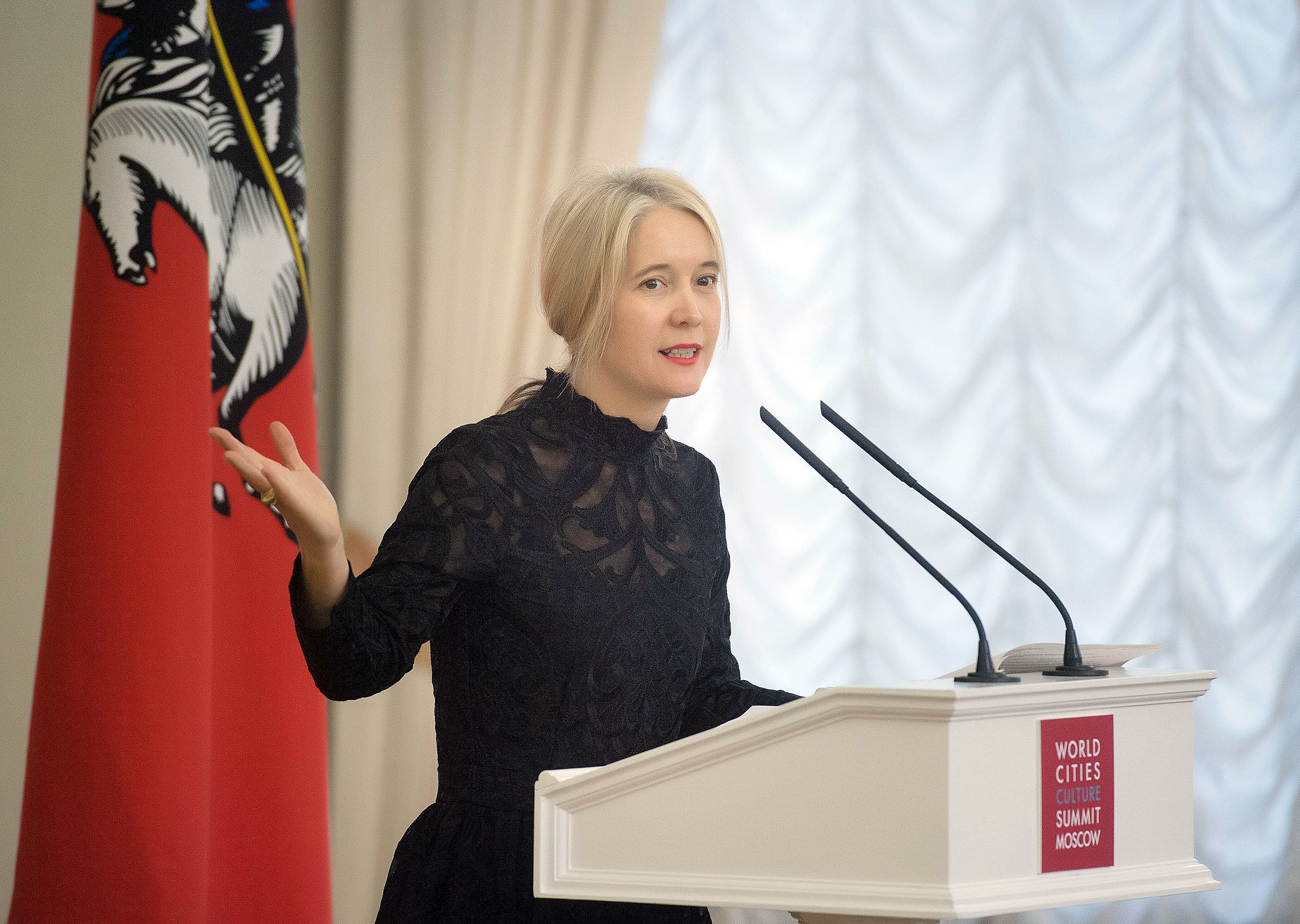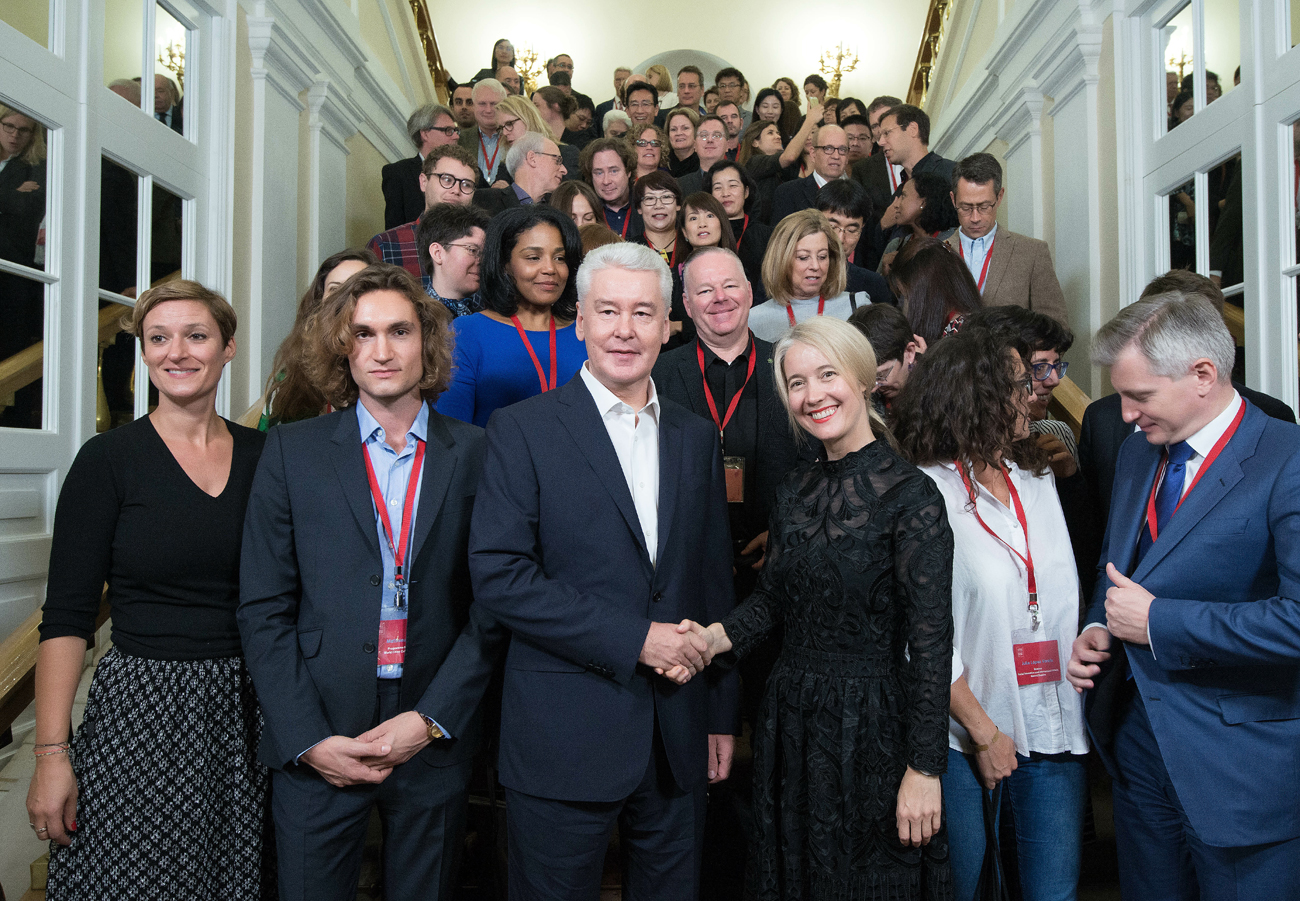
Deputy Mayor of London Justine Simons chairs the World Cities Culture Forum.
Evgenyi Samarin / RIA NovostiOn Oct. 5-7, Moscow hosted the World Cities Culture Forum, a conference for heads of culture departments of large cities that has drawn comparisons to Davos or the G20. For two days, delegates from major metropolises around the world discussed the challenges that culture faces in the urban space and what trends are driving cultural development. The participants also had a chance to experience some of the culturally inspired changes Moscow has undergone in recent years.
The forum was established in 2012 on the initiative of the mayor of London, and Moscow was invited to join in 2015. The Russian capital won the right to host the summit the very next year, but even its biggest promoters were concerned about how participants would react.
“When we were in London in 2015, one got the feeling that Moscow was not very popular in the West. To the very last, we were not sure how Western countries will treat us,” said Vladimir Filippov, deputy head of the Moscow city culture department and the man behind Moscow’s bid to host the summit.Those fears turned out to be unfounded. Twenty-four delegates attended the Moscow meeting, including the vice-mayor of Amsterdam; a deputy mayor of New York and the deputy mayor of London. The vice mayor of Rio de Janeiro did not attend the summit — but only because in the days leading up to it, he was appointed Brazil’s minister of culture.
On the first day of the summit, the delegates were greeted by Natalia Solzhenitsyn. The widow of the great Russian author and thinker Alexander Solzhenistyn reminded participants that while political actions are transient, arts and culture are eternal. The delegates then discussed the ways different cities are approaching culture, and whether the share of people employed in the creative sector should increase.
“If previously cities competed for factories and plants, now they are competing for human capital. That capital is there where the atmosphere is right, and the atmosphere is a derivative of creativity,” Moscow Mayor Sergei Sobyanin said.
 Moscow Mayor Sergei Sobyanin (C) with participants in the World Cities Culture Summit hosted by Moscow. Source: Evgenyi Samarin / RIA Novosti
Moscow Mayor Sergei Sobyanin (C) with participants in the World Cities Culture Summit hosted by Moscow. Source: Evgenyi Samarin / RIA Novosti
The delegates were for the most part impressed by Moscow’s physical transformation.
“You know, Moscow is similar to London, with is bicycle lanes and the way trees are decorated, and its culture and its past and future,” said Deputy Mayor of London Justine Simons. “Your mayor was right: one cannot imagine a city without culture. And you certainly have lots of it here…”
The Moscow summit also introduced a new element to the conference. For the first time ever, the World Cities Culture Forum held a session open to the public.
“We are showing that Moscow is one of the centers of democracy in culture. Previously, all sessions of the summit were closed to the public. But we want at least one of them to be open to everybody, so that it is attended not just by experts in the field but also by students who are studying the relevant subjects, and in general, by everybody who is interested,” said Vladimir Filippov.
At the open session, which was held on Oct. 7 at the ZIL Culture Center, the Forum delegates discussed the future of culture in major world cities. One of the major goals of the Forum is to bring people together to learn from one another. Large cities face similar problems, and the experiences of others can suggest the best ways to tackle them.
“One of the goals is cooperation. We are not just looking, we want to ‘steal’ the best ideas,” said Justine Simons, although she noted there was one idea she would like to steal from Moscow. “I was surprised by your libraries. There are many of them and they are well-equipped. It is a whole cultural layer and a symbol of your city, just as the Kremlin is,” she said.
This article has been abridged from the original Russian version, which first appeared in Izvestia.
All rights reserved by Rossiyskaya Gazeta.
Subscribe
to our newsletter!
Get the week's best stories straight to your inbox